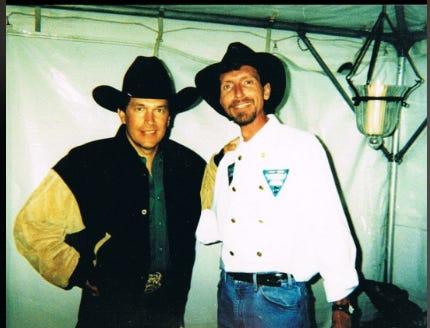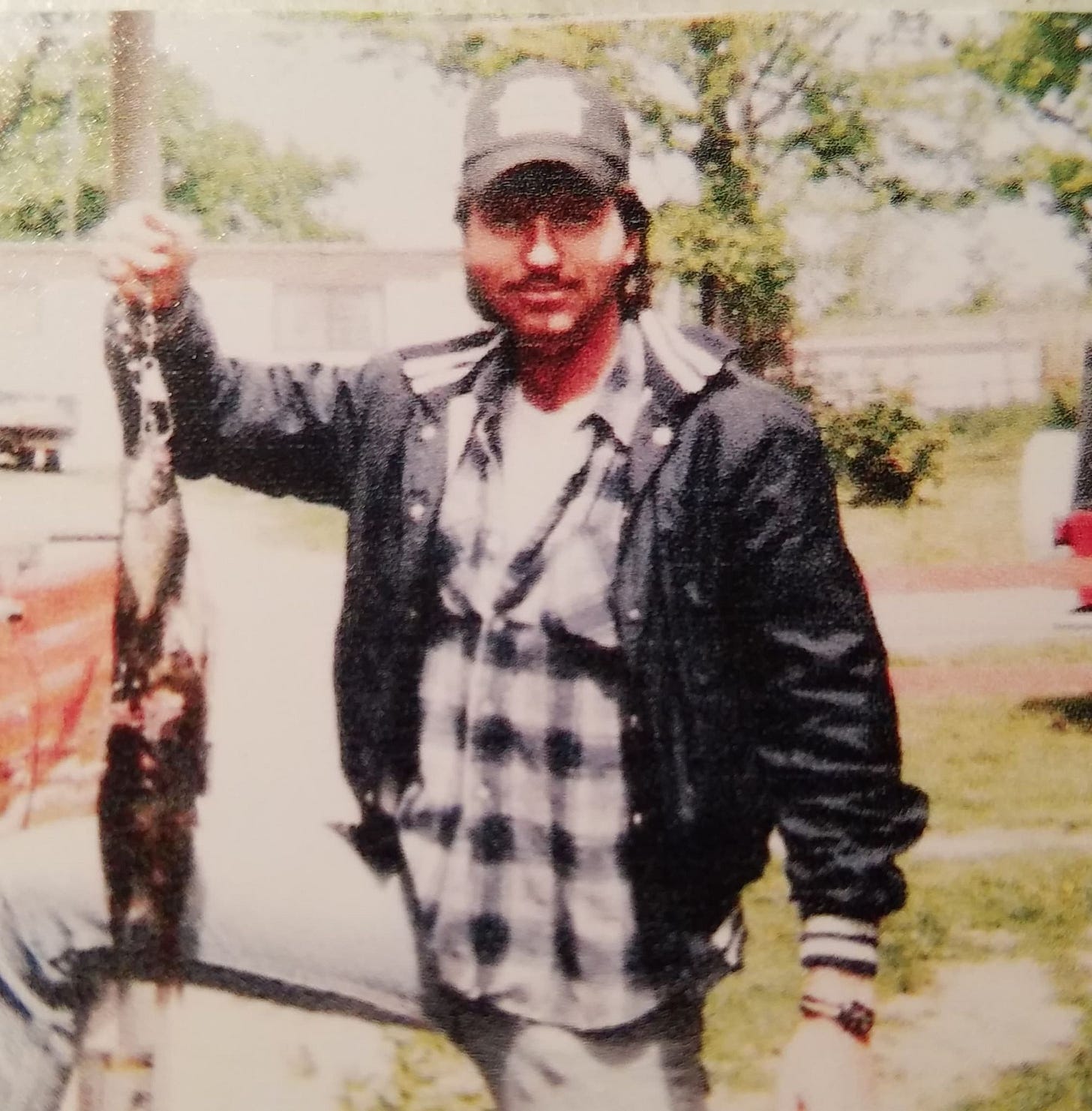My uncle Cecil Herbert was a beautiful wonderful gay man who came out shortly he died of AIDS on November 24, 2000. He was 39 years old.
I don’t remember much of Uncle Cecil- he was Dad’s younger brother. We didn’t spend much time with Dad growing up so the chances were few and far between. The only real memory I have of him is one Christmas when he stopped in to give me and my brother some presents. What I do have are feelings. It’s hard to explain, but there’s some remnant of fondness for the man whose face I have to remember via old photos sent to me by an aunt I’ve never met. But the feelings are warm and have stayed with me for my years, even as I have grown older than Cecil ever lived to be.
My mom swears that my uncle was a gentle, kind, and good man- the “best of them all” when referring to my Dad, his sister Sherrie, and brother Mike, the latter two I cannot recall, though they reached out when Dad died back in 2015. But there is no real feeling of family there.
No so with Cecil. For some reason, I think of him often. Dad too, for other reasons, though both with a tinge of sadness when I do.
All I really know about him is that he was a cowboy, apparently met George Strait once, and was really nice to his two young nephews.
I write tonight because I have also always felt a bit of loss for the man. I never really know how to talk about his sexuality—I never really knew him so is it my story to tell? But if not me, then who? I mourn that my uncle lived as a closeted man, that he felt he had to keep such a personal aspect of himself to himself. In western Kentucky and southern Indiana, that had to be especially hard. I remember a conversation with their sister—I dare not apply a familial term like “aunt” to her—when she told me after my father died that yes, Cecil was a gay man, but not to worry, he was “the man in his relationships.” I shake my head and rub my nose and the beard on my chin as I type this memory.
I suppose my father’s greatest day came in my mind when as I understand it he defended his younger brother against the family when Cecil came out. All of this is hearsay, but I tend to believe it based on what little I know about my father beyond his heartbreak and the drinking. But I want to believe it. And choose to do so.
I wonder about my uncle Cecil. What kind of man he was, what kind of conversations we would have had. If we would have shared a beer when I was older. I wonder who he was. And I am sad that I will probably never know, and sad that my own boys won’t either.
I like to think that I support LGBTQ+ rights across the board because it is the right thing to do, though I know that somewhere inside an anger exists because my father’s brother could not live freely in his own time and that anger makes me especially vocal. Maybe it is not my place to be angry about my uncle. But I am anyway.
My uncle Cecil had no kids; left no heirs. My brother does not talk about him, not that we talk often. So his memory is on me, now. I think about the world that continued on in the near quarter century since his death. How it has changed. How he could have lived.
I’m rambling. The living have that luxury.
My uncle Cecil is long gone now. And I have tried to reconstruct him as best I could. Like the father I didn’t know, I’ll carry this man, too. Some day my boys will carry me.




Jason, this is such a lovely tribute. I wondered, at the end of your piece when you talked about remembering for and with your sons, if there’s a panel for your uncle in the AIDS memorial quilt. I don’t know if you’ve ever had a chance to see a part of it exhibited ( as I’m sure you know, it is too big — over 50k panels—for the entire quilt to be shown) but seeing it in Cambridge back in 1990 was an extraordinary experience for me though the part I was seeing was not where I had lost friends and acquaintances ( I was a grad student in Berkeley and had moved from there to the east coast for an academic job in 1987). I have often taught the quilt in visual culture and critical theory courses and students who were too young to know the era when so many perished have been inspired to seek out exhibits of the quilt and have written me even years later about how it moved them in ways similar to or greater than experiences they had with the Vietnam war memorial or the cemeteries of the Normandy landings. I wondered myself if anyone in my distant family made a panel for a second-cousin-once-removed who was like your uncle, closeted in a small town in southern Missouri until he finally tried to come out and most of his relatives turned their hypocritical fundamentalist backs on him ( I only learned he had died twenty years after the fact from another second cousin from a far more tolerant branch of the family who came to my mom’s memorial service). I barely knew the cousin who was dead before age 30 but I think of him whenever I teach the quilt and hope someone from all those quilting-bee ladies in podunk Missouri secretly honored him with their embroidery skills. If you want to know more about the history of the quilt, the writings of Marita sturken are a good place to start (tangled memories Is the book but there were articles before and after). Your uncle would surely be very proud of you. Thanks for your great work and writing. All best j
What a wonderful tribute. Had he lived, I am sure he would be honored to have an ally like you on his side.